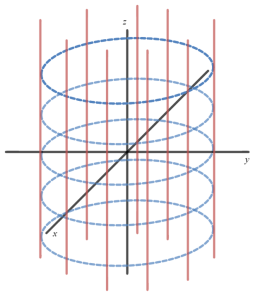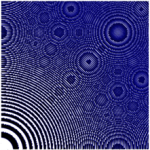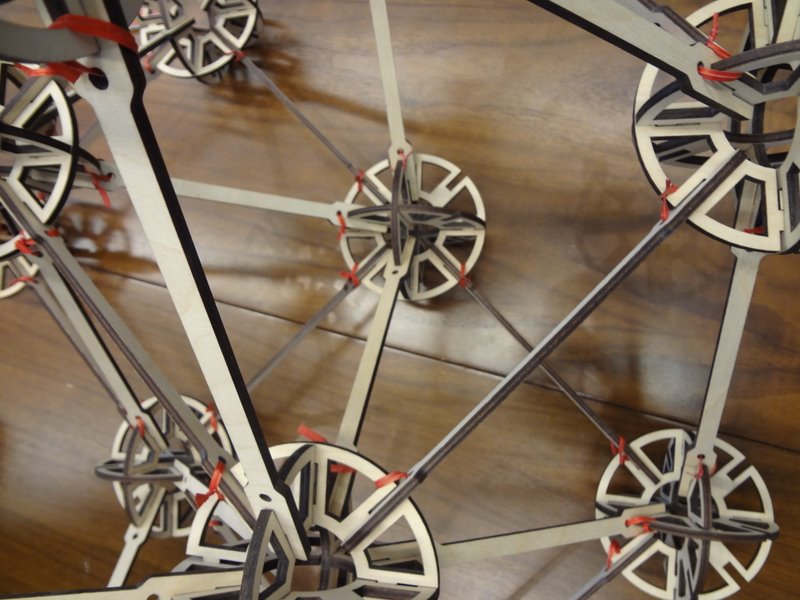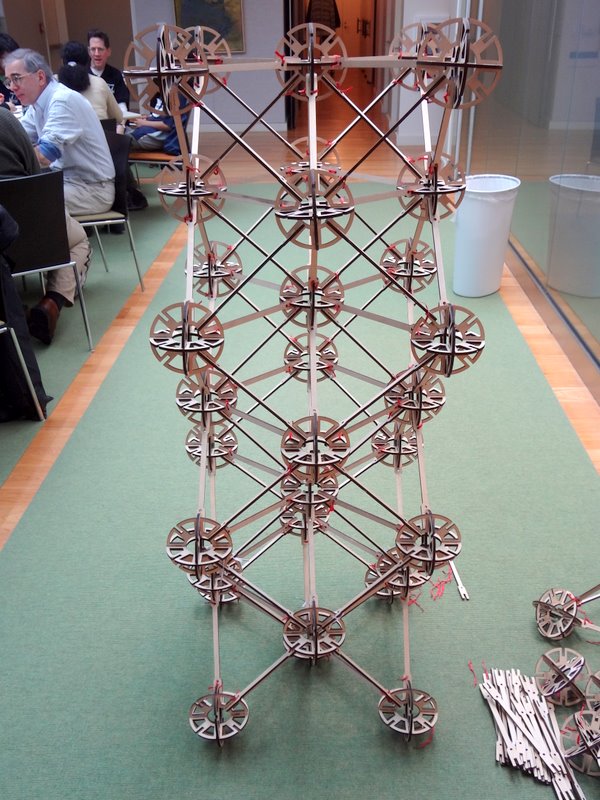Through Math for America, I had the pleasure of participating in a one-day workshop on symmetry led by well-known mathematician/computer scientist/sculptor George Hart. The workshop featured some great math and some excellent hands-on projects that really had us exploring some deep mathematical ideas.
We began the day by talking a bit about what symmetry is and the types of symmetries we’re accustomed to thinking about. Then we explored how the symmetries of a given object, when thought of as actions (like reflections or rotations), form a group, which creates an interesting mathematical structure to work with.
After the introductory mathematics, George led us through three hands-on activities meant to explore different symmetry groups.
The first project was building a Tunnel Cube from a set of pre-cut playing cards. The 12 cards were notched in such a way that the piece could be assembled without any glue or tape.
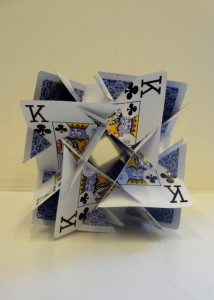
It did, however, require a great deal of dexterity and patience! You can see George’s explanation of the Tunnel Cube here, and watch a video in which he assembles it here.
The second project was building a ruled hyperboloid using kebab skewers and rubber bands.
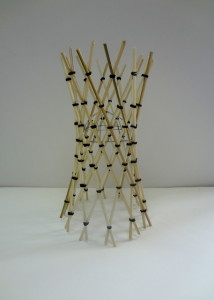
The last project was a group build, where we assembled a George Hart original sculpture. This was a bit harder than I imagined, but the process was full of the small frustrations and successes that good collaborative work entails.
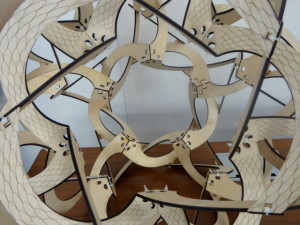
In addition to the fun project ideas, the big takeaway for me was using symmetry as a design parameter. While we assembled, and then admired, the final sculpture, George talked a little bit about his creative process. By thinking first of symmetries, and symmetry groups in particular, he outlines a design space for a particular piece, and then starts playing around in that space until he finds what he’s looking for. Each of the projects emphasized that idea with a different symmetry group.
Many thanks to George Hart, and Math for America, for an enriching day! You can see more pictures from the workshop here.
